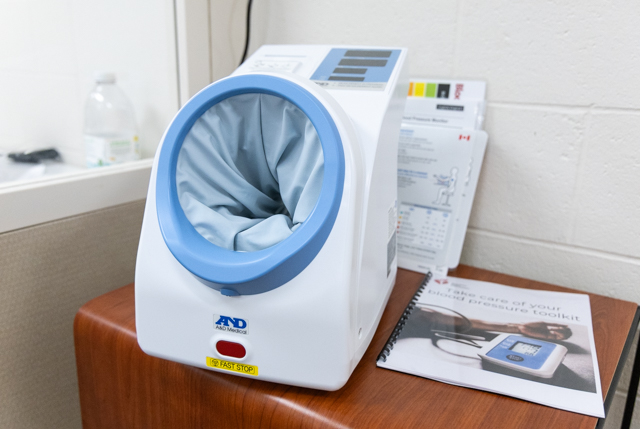Blood pressure testing comes to WCPL
Published 3:03 am Sunday, February 2, 2025

- A new self-serve blood pressure kiosk sits on the second floor at Warren County Public Library’s Lisa Rice Library on Friday, Jan. 31, 2025, as Warren County residents visit the library. WCPL installed the blood pressure machine and a second at the Bob Kirby Branch last week through the American Heart Association’s “Libraries With Heart” initiative, and will also include five take-home blood pressure kits that people can borrow like books, free of charge, for two weeks at a time. GRACE MCDOWELL / DAILY NEWS
BY DAVID MAMARIL HOROWITZ
david.horowitz@bgdailynews.com
The Lisa Rice Library and Bob Kirby Branch of the Warren County Library each installed a self-serve blood pressure kiosk last week. Each will soon obtain five take-home blood pressure kits that people can borrow like books, free of charge.
The American Heart Association is supplying them to Warren County Public Library through an initiative that has provided such kits to libraries across the states.
“Keeping track of your blood pressure is an important step in staying healthy, but not everyone has access to a monitor at home,” AHA Kentuckiana Senior Community Impact Director Tracy Monks wrote in a statement. “The ‘Libraries with Heart’ program makes it easier for people to check their blood pressure and learn what their numbers mean.”
The kiosks include instructions and a card explaining what results mean. They also print out a receipt with a person’s blood pressure reading and pulse, WCPL Community Outreach Manager Emily Witthuhn said.
WCPL expects to begin lending out take-home kits, which each include a monitor and an arm cuff, as early as this week, Witthuhn said. They’ll include step-by-step guidance on usage and be rentable for two weeks at a time.
Those wishing to borrow the kits can also request that WCPL puts them on hold at other WCPL branches, Witthuhn added.
Trending
Nearly half of U.S. adults experience high blood pressure – but many are unaware, and costs can often make blood pressure monitors inaccessible, according to AHA.
It’s also “a leading risk factor for stroke, heart disease, kidney disease, vision loss and other serious health issues,” AHA states in the release.







